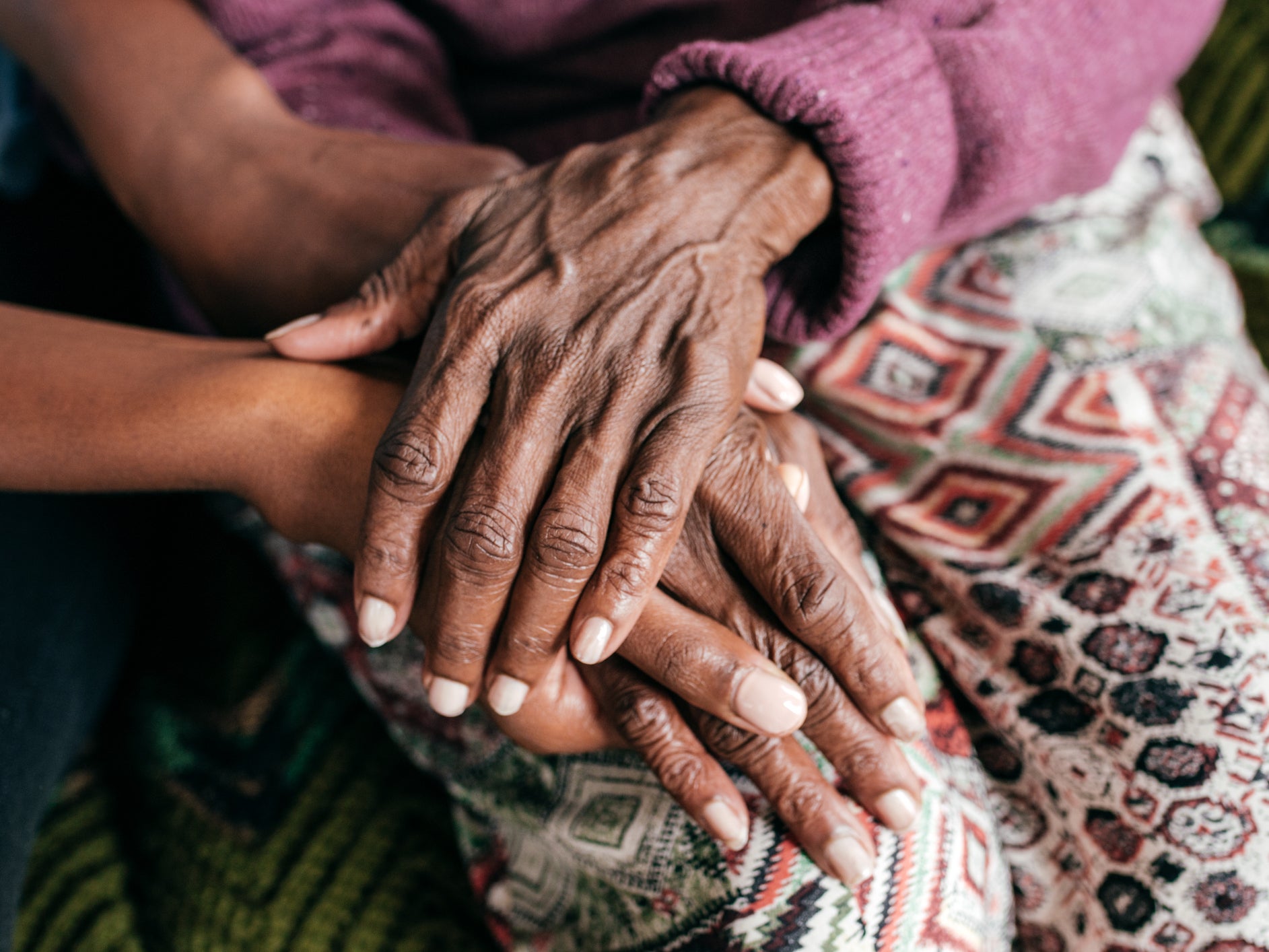A third of people with dementia ‘feel like giving up’ due to mental and physical impact of lockdown
‘It’s never been more important to ensure no one faces this crisis alone,’ Alzheimer’s Society chief executive says

A third of people with dementia “feel like giving up” due to the mental and physical effects of lockdown, new research has found.
As businesses continue to reopen amid the easing of lockdown measures across the UK, some members of the public may be feeling less confined than they have in months.
However, many people with dementia do not yet feel comfortable going outside, with some stating that the impact of the coronavirus pandemic has resulted in them feeling less connected to their friends.
Dementia is a term used to describe a set of symptoms, which can include memory loss and difficulties with thinking and language, the Alzheimer’s Society outlines.
The most common cause of dementia is Alzheimer’s disease, although it can also develop after a person has experienced a series of strokes.
In June, the Alzheimer’s Society conducted a study of 1,831 people with dementia and their carers.
Of the respondents, one-third said they feel “apathetic” or as though they “want to give up” due to lockdown, while a similar fraction said they do not feel confident venturing outside.
According to the charity’s findings, 45 per cent of the participants said that lockdown has caused their mental health to deteriorate, while 11 per cent said they have lost friends since social distancing guidelines were first implemented.
Furthermore, 46 per cent of unpaid carers said that their loved ones who have dementia are currently feeling stressed, anxious or depressed.
Throughout lockdown, the Alzheimer’s Society’s support services have been accessed more than half a million times, the charity stated.
The organisation has also received 15,000 calls to its dementia connect support line.
Through its research, the charity found that three in 10 people with dementia have gone at least four days without having a conversation that lasted more than five minutes, with this number rising to 46 per cent for respondents who live on their own.
Just over one in 10 said they had gone an entire week without having a conversation that lasted more than five minutes.
According to the Office for National Statistics, dementia and Alzheimer’s is the most common pre-existing condition among the 20,000 care home residents who died after contracting the coronavirus between 2 March and 12 June.
Chris Maddocks, a former police officer who was diagnosed with dementia in 2016, told PA news agency that it took her four years to “rebuild my life back up and still feel I have some worth and some value”.
“And then suddenly when you’re in lockdown you think, ‘Well I haven’t got anything now,” she said. “It just brought feelings back of feeling useless.”
Ms Maddocks, who raised more than £1,500 for the Alzheimer’s Society after having her head shaved in June, stated: “I think for the majority of people with dementia, certainly lockdown has had a negative impact on their mental health,” adding that she has heard “some people say they are not going out again until a vaccine is found”.
Karen Beattie, whose husband Robert has Alzheimer’s disease, said that it has been “awful” to watch her spouse of 24 years deteriorate over the past few months.
“He’s depressed, watches telly all the time, doesn’t speak to me sometimes for days. I have to coax him to speak, it’s gone really bad and it’s going to get worse I think,” Ms Beattie told PA.
Kate Lee, chief executive of the Alzheimer’s Society, explained how important it is to continue providing support to people with dementia as lockdown restrictions ease.
“As lockdown begins to lift and the true extent of its knock-on effect to the health and wellbeing of people with dementia becomes evident, it’s never been more important to ensure no-one faces this crisis alone,” Ms Lee said.
Join our commenting forum
Join thought-provoking conversations, follow other Independent readers and see their replies
Comments